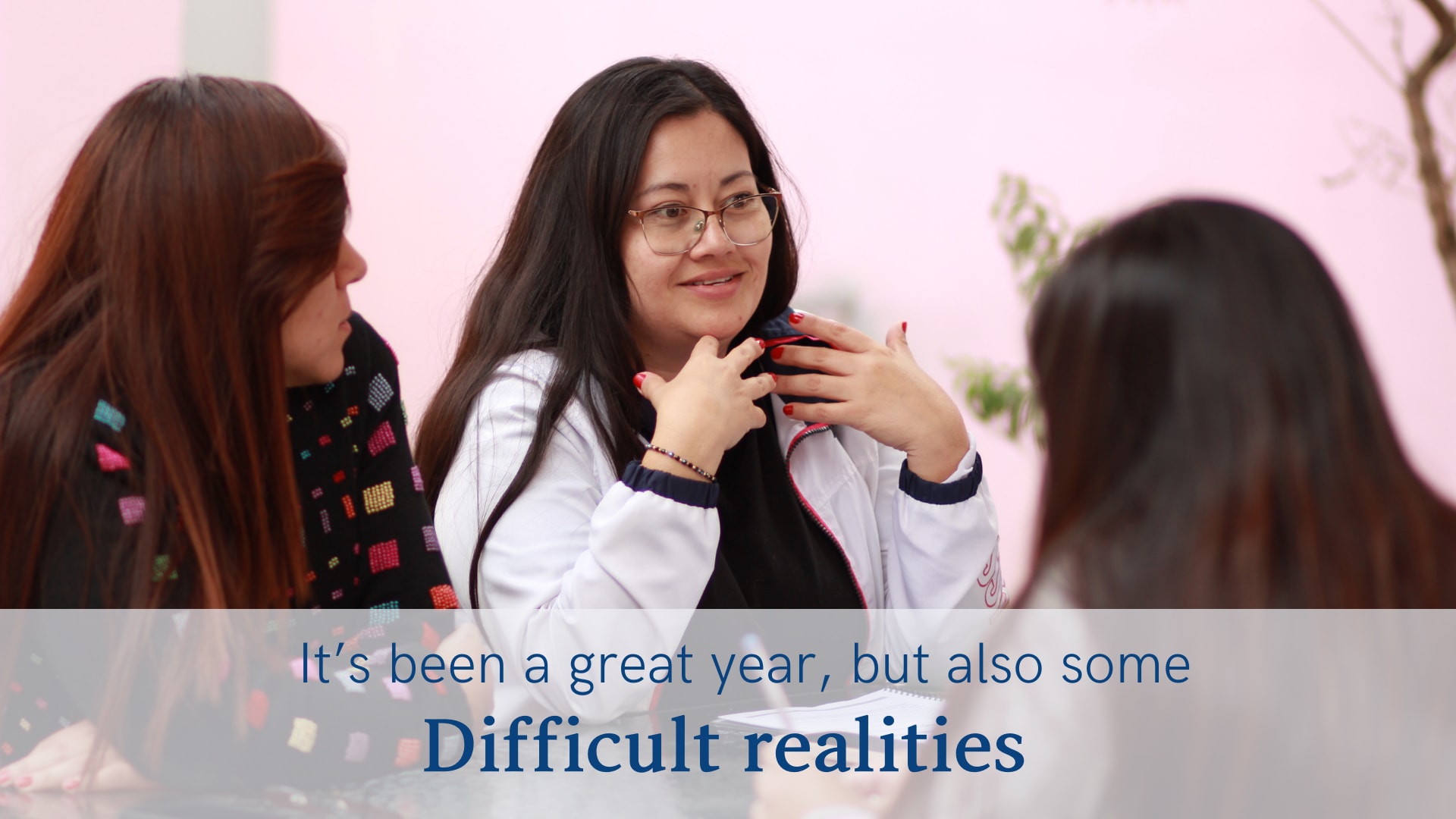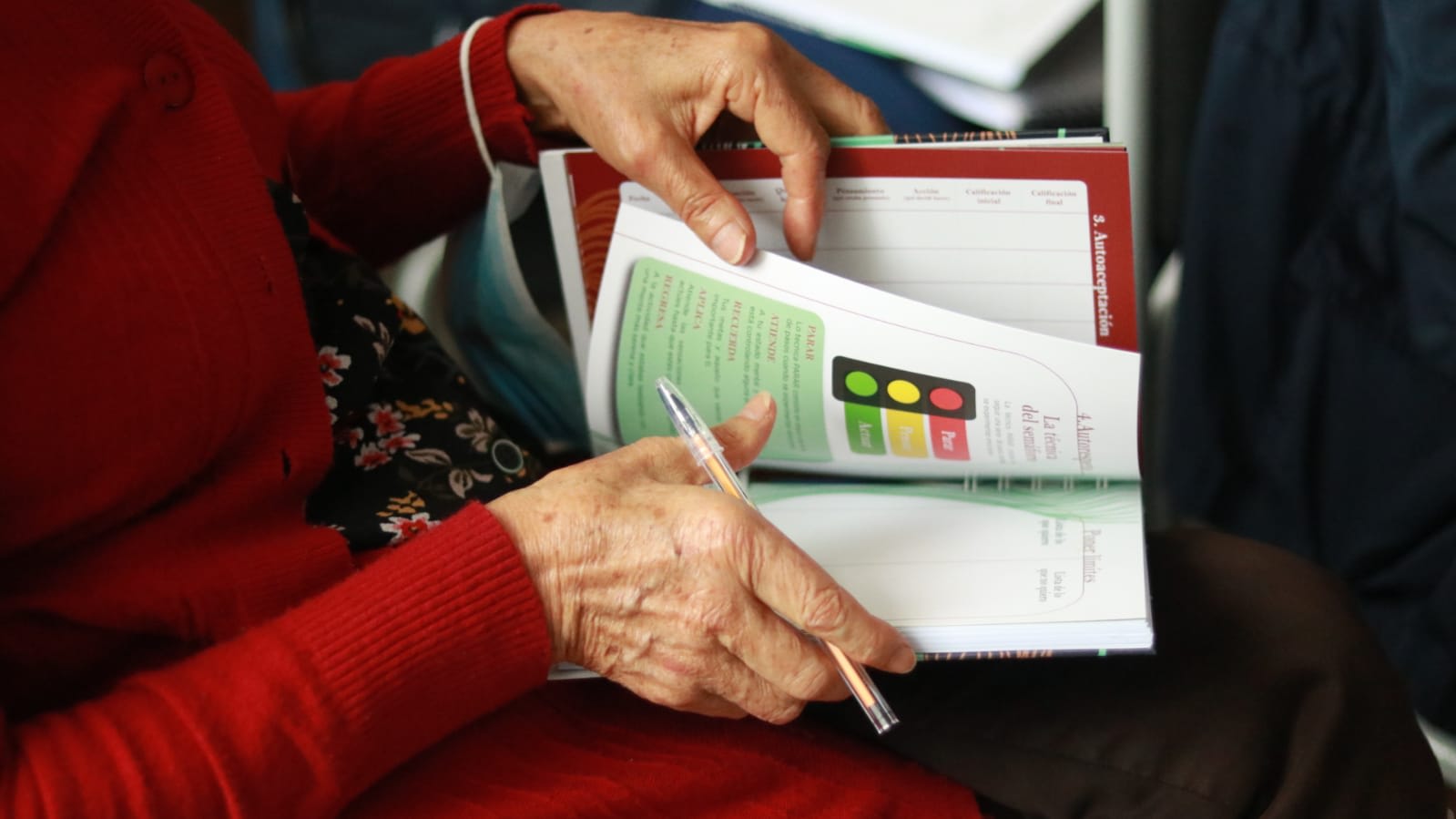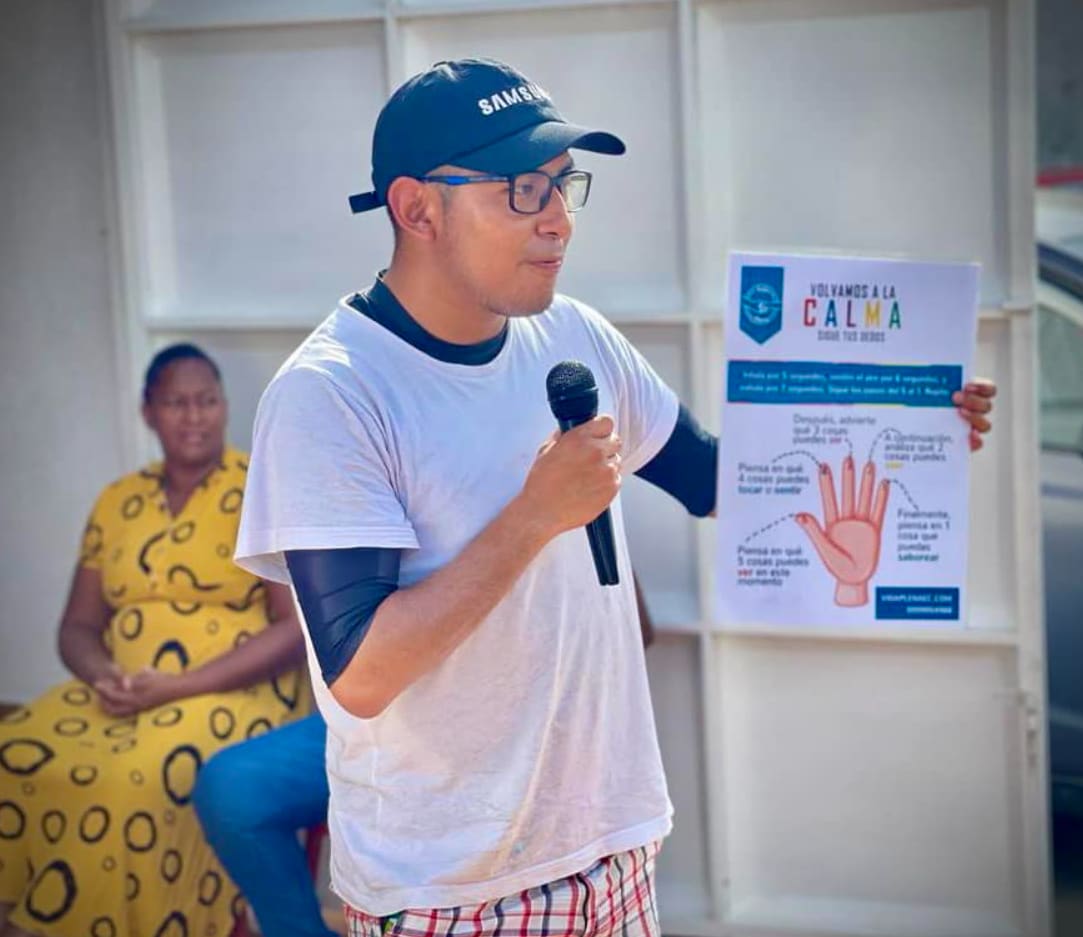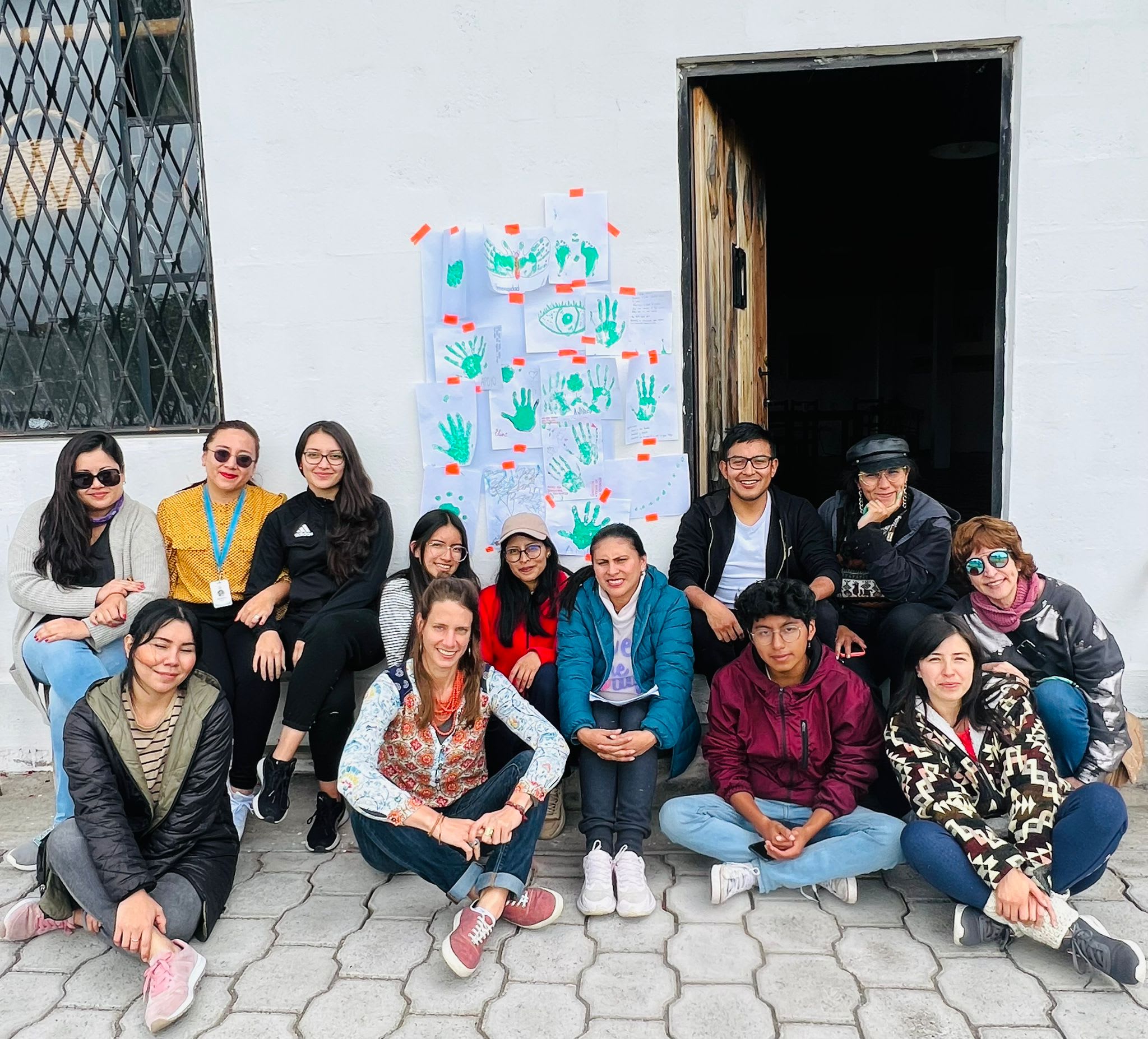Vida Plena’s 2023 Impact Report: Measuring Progress and Looking Ahead
By Vida Plena @ 2024-07-23T12:24 (+68)
We from Vida Plena are proud to present our first Annual Impact Report.
2023 was our first full year. It was a year of learning. We had just finished a successful pilot and started the year with the mission of building a solid foundation and proving that our therapy model works at scale.
This first annual impact report is our attempt to capture through charts and graphs bits of crucial evidence about who we’ve helped in 2023 and where we can continue to improve.

Background Context
Vida Plena (meaning ‘a flourishing life’ in Spanish) is a nonprofit organization based in Quito, Ecuador which launched in 2022 (see our launch post here).
Our mission is to build strong mental health in low-income and refugee communities, who otherwise would have no access to care. We provide evidence-based depression treatment using group interpersonal therapy, which is highly cost-effective and scalable.

Main Findings
Our main findings during the process of creating this report were:
- In 2023, we screened 882 people for depression. 434 (49%) of these became participants, taking at least 1 group session.
- Program participants had an average reduction of 6.6 in the PHQ-9 questionnaire. 68% of participants with moderate to severe depression clinically improved (≥5 points drop in PHQ-9). Five points are considered to be a clinically significant improvement.
- We also saw reductions in secondary indicators of self-harm thoughts and suicidal ideation, anxiety, psychosocial functioning, and employment. Participants who fill out our end-line survey also report high satisfaction with the program and increased feelings of hope and purpose.
- 90% of participants came from vulnerable groups, the most common of which were people experiencing food insecurity (56%), female heads of households (34%), and migrants and refugees (22%).
- Participant recovery seems to be related mostly to the baseline level of depression and not so much to the number of sessions taken or other variables like the modality of the sessions (virtual or in person).

Challenges
While we are excited with these results, there are many challenges and areas we still feel we need to improve. In particular:
- Even though 5 points is considered to be a clinically significant change on the PHQ-9 scale, the 6.6-point drop is still below our more ambitious target. In 2024, we aim to improve this margin to nine points across participants entering with moderate to severe depression.
Relatedly, we aim to improve our participant retention rate. Our initial findings suggest that participants may drop out when they start feeling better. We believe there is room for them to continue improving and learning important skills to enhance their resilience and strengthen their support network if they attend more therapy sessions.
Limitations
We are also aware that this first report has limitations.
- First, we rely basically on pre-post participant comparisons, with no randomized control group. We try to partially compensate for this fact by considering spontaneous remission data from the scientific literature. However, our priority in the coming years is to implement control groups where people who are not involved in Vida Plena g-IPT sessions take PHQ-9 assessments over eight weeks to determine our population’s spontaneous remission rates.
- Secondly, some of the data we collect is likely subject to multiple biases. For example, the program satisfaction data we have, as well as many secondary indicators, come from people who take the end-line survey by the end of their 8th group session. People who get so far into the program without dropping out are likely the ones who saw the most value in it, and this can skew our conclusions.
- Finally, our previous attempts to get follow-up data three and six months after the completion of the program have suffered from terrible response rates (<10% at six months). We are considering ways to offer incentives for people to answer follow-up surveys, so that we can better understand whether the effects we see continue to exist over time.

Next Steps for Our Work
- In 2023, Vida Plena programming was only mainly available in Quito, the capital city of Ecuador. In the coming year, we have identified target cities in the neighboring province of Imbabura for expansion, a fairly rural area with a large indigenous population. We will conduct community consultations to adapt the current g-IPT model to this local context.
- As part of our commitment to being an evidence-based organization, we are dedicated to carefully tracking the impact of our work. While we have made progress in this area, in the next months, we plan to enhance our M&E systems and hire a full-time specialist to oversee this area.

Read the Full Report
We invite all people interested in learning more about our work to read our full 2023 Annual Impact Report. We are eager to hear your comments and feedback on how we can continue to improve!
Acknowledgments
A special thank you to Julia Karbing for creating the initial database and Laura Castro and Bernardo Chrispim Baron for pulling and analyzing the relevant data needed for this report. Also a huge thank you to James Che, Juan Benzo, Stanley Pinsent, Barry Grimes, and Samuel Dupret for providing feedback and critical commentary for earlier versions of this report.
We would like to express so much gratitude to the entire team at AIM, the Flourishing Minds Fund, and Affinity Impact.
And of course, none of this would have been possible without Vida Plena co-founder Anita Kaslin and the entire team of exceptional community facilitators in Ecuador. Read more about their stories here.
We would love to stay in touch and keep you up to date with our work
Sign up here for email updates
We’re also on Instagram: @vidaplena.global and Linkedin.
If you want to help, please tell others in your network about us: the best connections are unexpected. We are looking to connect with people and organizations involved in global mental health, both in industry and academia. Feel feel free to reach out at joy@vidaplena.global
And of course, we welcome any donations to help support our mission and work.

huw @ 2024-07-26T00:55 (+1)
Congrats! These are great results and it looks like you're scaling really well for a very early-stage org :)
I'm curious about that 9-point PHQ-9 reduction goal. How did you decide on it? Do you think it's achievable (especially since you saw a much larger reduction in your pilot)? Why do you think you saw such a large difference in reductions between the pilot and now? And finally, do you think focusing on increasing effect size will take effort away from cost-reduction efforts?
SummaryBot @ 2024-07-23T15:01 (+1)
Executive summary: Vida Plena's 2023 Impact Report shows promising results in providing mental health care to vulnerable communities in Ecuador, with participants experiencing significant reductions in depression symptoms, though challenges and areas for improvement remain.
Key points:
- 434 participants received group therapy, with 68% showing clinically significant improvement in depression symptoms.
- Program reached vulnerable groups, including those experiencing food insecurity, female heads of households, and migrants/refugees.
- Challenges include improving retention rates and increasing the average reduction in PHQ-9 scores.
- Limitations of the report include lack of a control group and potential biases in data collection.
- Future plans involve expanding to rural areas, enhancing monitoring and evaluation systems, and adapting the therapy model to local contexts.
- Organization seeks feedback, connections in global mental health, and donations to support their mission.
This comment was auto-generated by the EA Forum Team. Feel free to point out issues with this summary by replying to the comment, and contact us if you have feedback.